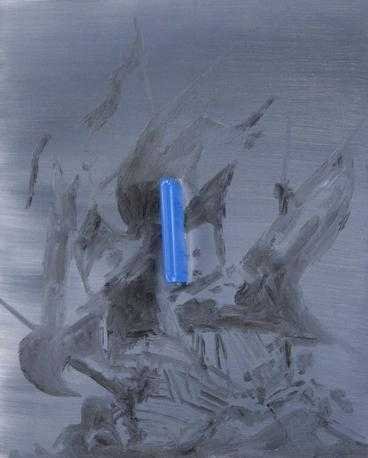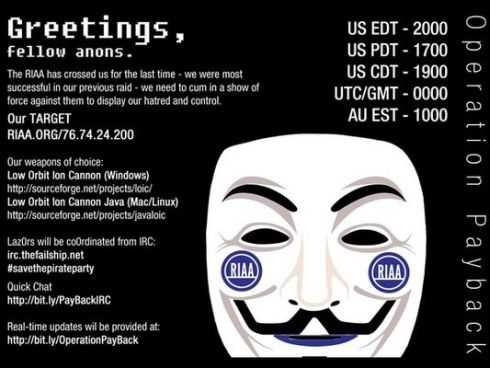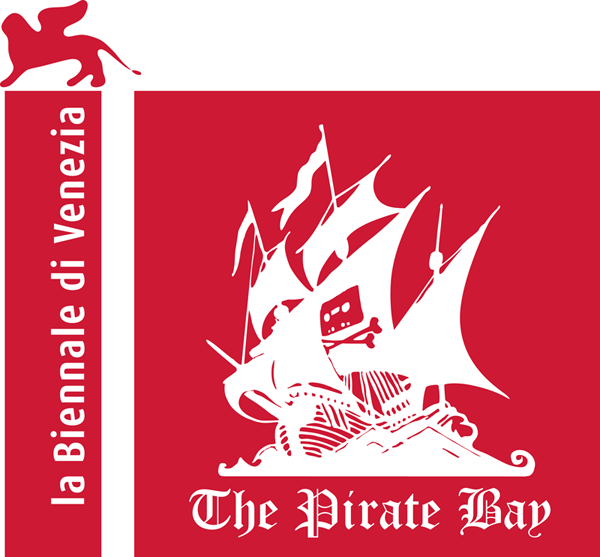The hacker they enable new things to enter the world. It's not always great things or good things, but new things. In art, science, philosophy and culture, in every knowledge process where data is collected, from which information can be drawn, from which new possibilities for the world can be produced, there are hackers hacking the new into the old .
McKenzie Wark, A Hacker Manifesto

Hacking is based on orientation and disorientation. It is about exploring a foreign system to pave the way for it to navigate; and it is also about introducing a conscious disorientation and new orientations into this system.
Από τα άγνωστα βάθη του Deep Web και τις πολύπλοκες οδηγίες σε εξειδικευμένα φόρουμ, τελευταία το hacking αναδύθηκε στην surface των πρωτοσέλιδων και των τηλεοπτικών παραθύρων. Το κλιμακούμενο ενδιαφέρον για τα Wikileaks και τη δίκη του Pirate Bay, και τα γεγονότα που επακολούθησαν, έκαναν μια αναπάντεχη αποκάλυψη στο κοινό:
After being taught by Beuys that "every person is an artist" and Warhol that "everyone can become famous," now Anonymous and their forums demonstrated that:
Everyone can become a hacker.
How; First of all, you need to hide your computer's IP address. Then you just follow the simple instructions.
Why; So, to protect the ideal of freedom on the Internet, because "this is our new homeland and it is the only territory that makes sense to defend and protect."[1].
Originally the Internet was presented as the land of the Gospel for Freedom of Speech, a place where everyone could have access to any information. Some thought that it was a gateway to freedom for non-democratic countries; strangely it was George Bush who exclaimed "Imagine if the Internet took control in China. Imagine how freedom would spread, "1999.
That same year, Napster was founded and the request for information control turned into a hot topic, which resulted in trials, page closures and protests at a global level. A decade later, Pirate Bay was convicted of copyright infringement in Sweden, its law hadopi was voted in France, and a significant number of countries sought to limit access to specific pages, with the pretext of protecting intellectual property laws and protecting children from inappropriate content.
However, after the release of the classified documents of the American embassies, it has now become clear that the limitation of access on some pages it was of a political nature. I will not go into further detail about it content of diplomatic papers, the absurdity of the Assange case and the attempt by big companies and social networks to weaken them Wikileaks. Besides, Wikileaks simply brought to life wars and policies we already knew; certainly, the warfare shocks, but unfortunately no soldier has ever stopped killing unconsciously - in a video game - since the documents leaked.
What I am most interested in here is how these hypotheses - from Napster to Wikileaks - have contributed to the politicization of online groups, how hacking has become a daily practice for a large number of people, and how these changes are reflected in specific artistic and cultural practices that are offline.
From Napster to Pirate Bay, a huge amount of copyrighted material has been "broken" and "converted" to make it accessible to everyone easily and at no cost. If you have downloaded a program illegally, then you may have followed the instructions of the attached .txt file to install it - an initiation to hacking. And it's quite possible that you've used a file converting program to open or share a file.
In any online P2P file sharing community, users communicate and exchange opinions with one purpose: to share information.
When Pirate Bay was convicted of copyright infringement 2009, the view it received Party of Pirates - founded in Sweden, 2006 in order to seek a new approach to Information Society issues - escalated; after the establishment of the International Pirates Party, it quickly gained support and votes in many countries worldwide. The Pirates Party is not linked to the pre-existing ideologies of the Right and the Left; it supports the reform of the laws on intellectual property and personal life, both in the Internet and in everyday life. In addition, it proposes immediacy and transparency to the state administration, setting an example with ideology and party politics, often shaped by members' online and forum votes. Well,
Is this the future of democracy or is it another utopia?

It may be too early to say. For the time being, we can only speculate about this online battle as we see the implications of the Wikileaks case. In response to the attack on Wikileaks and his founder, Julian Assange, Anonymous - one "A cultural phenomenon that arose from Internet message boards"Without being related to Wikileaks or the Pirates Party, has decided to launch attacks on some of Wikileaks' enemies, such as MasterCard and PayPal. The "#OperationPayback", as it was named on Twitter, consisted mainly of "DoS attacks" (attacks during which they cause so much traffic on the target page that the page collapses for some time).
Μπορούμε εύλογα να υποθέσουμε ότι οι χ-ακτιβιστές έχουν επίγνωση του γεγονότος ότι αυτή η επιχείρηση δε θα μπορούσε να αποτελέσει σοβαρό χτύπημα για μια πολυεθνική-γίγαντα∙ όπως η MasterCard και το Paypal επιδεικνύουν τη δύναμή τους αρνούμενοι τις services in Wikileaks, hackers also demonstrate their power to take down the pages of their opponents.
What is interesting here is how Anonymous used Social Networking, such as Facebook and Twitter, to coordinate attacks and initiate a wider audience in hacking. Anyone who had the curiosity to click on the links on Twitter could find easy instructions that explained step by step how to hide his IP address and then participate in the DoS attack. At the same time, participants were members of an online community with common goals in terms of protecting the freedom of the Internet:
A revolution whose manifesto was shared on social networks and the "weapons" were provided by download.
Of course, in order to become part of this revolution and become one of the hackers, it had to be on the Internet.
But hacking is no longer limited to the digital world; artists extend the boundaries of hacking to the real world by touching a different audience that does not necessarily relate to the world of the Internet and its ideals.
If we consider a hacker "someone who can break a code," whether it is a technical, social or intellectual code "and as a" player "and" warrior "who installs" as a parasite "into real-world (image) produces noise with his interventions, bringing new codes into circulation "[2], then we could find several "hackers" in the visual field. From Duchamp's ready-made to Warhol cans, there are plenty of examples of Cultural Hacking, where a visual code associated with an object breaks and transforms into another code - visual or linguistic.
http://www.youtube.com/watch?v=jkZoC6dwRqE
Image appropriation and interference with existing spaces and relationships are elements present in modern art. In the case of street art, we can see it as a kind of hacking outside the Internet: the laws that ban it, the growing interest of the audience and the artists who appropriate and interfere with existing forms - by changing or transforming them. Even in street art artists' vocabulary we can detect a somewhat "fighter" spirit: street art artists "bombard" or "raid" in a place, Shepard Fairey spreads his "propaganda" - pop culture or art history, and Space Invader invades a city. A more intense political thrill characterizes Banksy; the illegal installation of an inflatable doll depicting a Guantanamo prisoner in Disneyland has much to do with the practitioners' practice of altering the content of the page they are attacking. It's like hacking a three-dimensional space.
 Emphasizing this form of hacking, the report "Hacking the City", with curator Sabine Maria Schmidt in Essen, presented interventions in the public space around the city, dealing with "Adbusting and Faking Strategies, adding and subtracting, irritation and pause times, forms of Making Happiness, flash mob actions, representations, performances, public sculpture, covert investigations, hidden actions, events directed over the Internet or mobile phones [...]. These strategies follow the hacker's logic: go to other systems, orient and then import applications that change or extend the boundaries of this system and its usefulness "[3]. Therefore, the term hacking can be extended to include any kind of appropriation and use of a system, as well as subversive actions in the public domain and the Internet.
Emphasizing this form of hacking, the report "Hacking the City", with curator Sabine Maria Schmidt in Essen, presented interventions in the public space around the city, dealing with "Adbusting and Faking Strategies, adding and subtracting, irritation and pause times, forms of Making Happiness, flash mob actions, representations, performances, public sculpture, covert investigations, hidden actions, events directed over the Internet or mobile phones [...]. These strategies follow the hacker's logic: go to other systems, orient and then import applications that change or extend the boundaries of this system and its usefulness "[3]. Therefore, the term hacking can be extended to include any kind of appropriation and use of a system, as well as subversive actions in the public domain and the Internet.
The report titled "Open_Source_Hack_Art", hosted at 2002 at the Museum of Contemporary Art in New York, presented artists influenced by the Open Source movement and Hack Art. Among them, their work Knowbotic Research "Minds of Concern: Breaking News", which consisted of an installation and a web interface. Through the project the visitor could choose between groups of pages, movements and non-governmental organizations and clicks on a name. This triggered a set of procedures that investigated the server's security conditions on the page, looking for security gaps. The project was retired after a few days because it was accused of violating policy of use.
 On an even greater scale, 2009 the Italian police invaded SALE, one of Venice's Biennale side projects, because they hosted the Pirate Bay. The first Internet booth, curated by Milto Maneta, included the Pirate Bay among the artists and groups, thus creating fertile ground for the cultivation of new practices and ideas related to the Internet, culture and politics. The case of Manetta is of particular interest here; in addition to his Internet Art works, his open support for pro-liberty groups in Internet, as well as his visual works that echo the Pirates logos ("Pirate Paintings") and their slogans ("I'm gonna copy"). as well as his texts, such as the Pirates Manifesto, somehow summarize all of the above issues regarding Internet freedom and the birth of a new political conscience.
On an even greater scale, 2009 the Italian police invaded SALE, one of Venice's Biennale side projects, because they hosted the Pirate Bay. The first Internet booth, curated by Milto Maneta, included the Pirate Bay among the artists and groups, thus creating fertile ground for the cultivation of new practices and ideas related to the Internet, culture and politics. The case of Manetta is of particular interest here; in addition to his Internet Art works, his open support for pro-liberty groups in Internet, as well as his visual works that echo the Pirates logos ("Pirate Paintings") and their slogans ("I'm gonna copy"). as well as his texts, such as the Pirates Manifesto, somehow summarize all of the above issues regarding Internet freedom and the birth of a new political conscience.
This new political consciousness requires the adaptation of society, laws, art and culture to the new conditions arising from the widespread use of the Internet.
From the torrents of music and movies to the most obscure secrets of global diplomacy, it seems that the shortest path to culture and politics is hacking.
[1] Miltos Manetas, "Pirates of the Internet unite!", Interartive #18, February 2010. http://interartive.org/index.php/2010/02/piracy-manifesto/
[2] Torsten Meyer "Postironischer Realism. Zum Bildungspotential von Cultural Hacking ", http://culturalhacking.files.wordpress.com/2010/10/comcom-katalog_meyer.pdf
[3] http://www.hacking-the-city.org/about
Hacker: A New Political and Artistic Practice
Article by Christina Grammatikopoulou
Reproduced by http://interartive.org/2010/12/hack-art/





